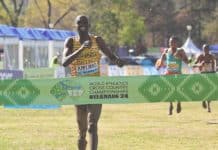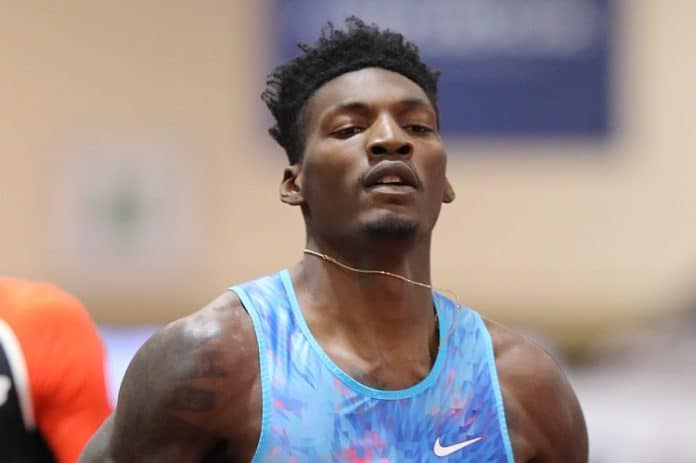(★ Friends: Thank you for supporting the costs of this site.
Please donate here if you would like to help. ★)
● Plus: Paris 2024: Nothing is easy as three sports will be moved to new sites = Milan Cortina 2026: IOC announces increase of events from 109 to 116, as ski mountaineering added and Nordic combined barely survives = Russia: 21 national federations have filed exclusion appeals ●
Key status updates on the urgent stories in Olympic sport:
≡ SPOTLIGHT ≡
“At the end, the IOC Executive Board felt that enough was enough and in the interests of the athletes and of the boxing community, the Executive Board of the IOC today decided that the boxing qualifying events and the competitions at the Olympic Games Paris 2024will not be run under the authority of the IBA.”
International Olympic Committee Sports Director Kit McConnell (NZL) told reporters on Friday that the International Boxing Association will not be involved in the administration of the Paris 2024 boxing qualifications or competitions. This extends the removal of the IBA (formerly AIBA) from the organization of the Olympic boxing competitions, as the IOC did for the Tokyo 2020 Games, forming its own organization to run the events quite successfully. McConnell further explained:
“This decision is centered on the athletes themselves and the need I referenced to provide certainty on the Olympic competitions and the Olympic qualifications leading up to Paris 2024. And it follows the continuing and very concerning issues that continue to go on within the IBA. And we’ve referenced any number of times the governance, the refereeing and judging and the financial concerns which remain.
“The IOC administration will therefore finalize, on an exceptional basis, alternative models for the organization of these boxing competitions, working closely with the organizing committee of Paris 2024, and, of course, with athlete representatives.
“And the outcomes of these discussions and suggested recommendations for the models to be put in place will then be presented to the IOC Executive Board. And, finally, whether or not boxing will be included in the sports program for Los Angeles 2028 will be discussed at a later stage.”
McConnell did note that some of the referees and judges who have been certified by IBA will likely be used, as there is a “limited pool” of such officials, but that they would be engaged under strict supervision, as for the Tokyo Games.
Asked if there is a timeline for the IBA to resolve its myriad, McConnell shot back:
“I think we’ve been looking for clarity from AIBA – now the IBA – for several years, and the concerns still remain, in exactly the same areas: governance, refereeing and judging and finance. And I think this is far from the first time I’ve said that … and talking about exactly the same things.”
As for Los Angeles 2028, boxing is not currently on the program, and a future decision will consider the forthcoming actions of the IBA. That’s not a promising outlook.
The IBA’s Board of Directors also met on Friday and issued a statement that it “is deeply disappointed by the IOC’s decision and will now take some time to carefully consider its next steps.”
In view of the recent decision of the Court of Arbitration for Sport upholding the appeal of Dutch Boxing Federation President Boris van der Vorst against his disqualification from May’s elections, the IBA Board agreed to hold another Extraordinary Congress, between 24 September-1 October to authorize and hold a new election for President.
Observed: The IOC’s frustration with the IBA is now long and worn and the real question for Los Angeles is not whether that federation can be trusted or reformed by the middle of 2023 – it can’t – when the decision is to be made about 2028. The consideration will inevitably turn to whether boxing – as a sport – should be part of the Olympic Games, especially whether it is compatible with the IOC’s mission for sport as part of a peaceful society.
≡ THE 5-RING CIRCUS ≡
● Games of the XXXIII Olympiad: Paris 2024 ● Demonstrating that the organization of an Olympic Games is neither straightforward or predictable, the Paris 2024 organizers announced that new sites will be designated for shooting, boxing preliminaries and part of the modern pentathlon.
The shooting events had been at the Terrain des Essences in La Courneuve, but will be moved, and the preliminary boxing bouts and the fencing portion of the Modern Pentathlon will be moved from the Suzanne-Lenglen court at the Roland-Garros Stadium to another site – not yet determined – in the same Seine-St.-Denis area.
The search is still on for a suitable site for preliminary basketball matches after an outcry over the use of a technically adequate, but “unsuitable” temporary arena inside the massive Arena Paris Sud Hall 6.
All this with two years to go. Not at all unprecedented, but an illustration of how difficult it is to organize such a massive event.
● XXV Olympic Winter Games: Milan Cortina 2026 ● The IOC announced the program for the 2026 Winter Games, expanding the event once more by adding eight events and removing one while maintaining the athlete limit at 2,900. The total number of events will rise from 109 at Beijing 2022 to 116:
● Alpine Skiing: removal of Mixed Team Parallel
● Freestyle Skiing: Men’s and women’s Dual Moguls added
● Luge: Women’s Doubles added
● Skeleton: Mixed Team event added
● Ski Jumping: Women’s Large Hill added
● Ski Mountaineering: a new sport with three events, men’s and women’s sprint and a mixed team relay.
Also, the Alpine Combined is still to be confirmed and could be dropped; the IOC has been trying to get this of this for years. A new format may be considered, with a decision due in April 2023.
Nordic Combined, held only for men and widely expected to be expanded with a women’s division, was instead almost eliminated, essentially due to the fact that it is barely recognized outside of Europe and Japan; the IOC put it this way:
“This is demonstrated by the fact that, at the last three editions, the 27 medals available in Nordic Combined were won by athletes from only four NOCs. In addition, Nordic Combined had by far the lowest audience numbers during those Games.”
Oh yes, the television audience! The future:
“The decisive argument for keeping Nordic Combined on the Olympic programme for Milano Cortina 2026 was the situation of the male athletes, for whom the Olympic Games are only three-and-a-half years away and who have already been preparing for these Games for many years. This is not applicable for the women’s category as they have had only one World Championship to date, with the participation of athletes from only 10 National Federations. The inclusion of Nordic Combined in the Olympic Winter Games 2030 depends on a significant positive development, particularly with regard to participation and audience.”
The IOC said that applications were made for 23 new events and 359 more athletes at the Games, but that the Beijing athlete total of 2,892 will be increased only to 2,900.
● Russia ● The Russian Ministry of Sport announced that 21 national federations have filed appeals against exclusion from international competitions, with 12 filings at the Court of Arbitration for Sport.
Deputy Sports Minister Andrey Fyodorov said “There have been no CAS verdicts yet. All appeals have been accepted. Preparatory procedures are underway. According to our information, decisions on the appeals filed will be made in the second half of the year. We expect that some developments will begin there in August-September.”
Most Russian and Belarusian athletes have been barred from international competition, with a few International Federations allowing them to play as neutrals, in response to the Russian invasion of Ukraine since February.
≡ SCOREBOARD ≡
● Athletics ● Three world-leading performances headlined Friday night’s USATF National Championships from a lightly-attended Hayward Field in Eugene, with seven finals concluded.
The first mind-blower came in the men’s 100 m semis, where Olympic silver medalist Fred Kerley stormed to a lifetime best, the world lead and moved to equal-sixth all-time at 9.76 (wind: +1.4 m/s). Second semi winner Trayvon Bromell wasn’t far behind in winning semi two at 9.81 (+1.5), with Marvin Bracy (9.86) and reigning World Champion Christian Coleman (9.87) in close attendance.
Coleman, who already has a direct entry into the Worlds in July, skipped the final, but Kerley was superb again, taking the lead at midway and winning in 9.77, with Bracy at 9.85 and Bromell third at 9.88. Wow!
While this was going on, two-time World Indoor Champion Sandi Morris was busy at the women’s vault, winning an eighth national title (indoors and out) at 4.70 m (15-5) and then raising her won world-leading mark to 4.82 m (15-9 3/4). Alina McDonald was second at 4.65 m (15-3, lifetime best), beating Olympic champ Katie Nageotte on misses.
Only a little later came one of the greatest exhibitions of shot putting in history. Olympic champ and world-record holder Ryan Crouser came in as the world leader at 23.02 m (75-6 1/4) from the Pre Classic in May, then went insane from his favorite ring. He opened at 22.42 m (73-6 3/4) and a foul and then went into orbit:
● 23.12 m (75-10 3/4), the equal-4th throw in history;
● 23.01 m (75-6), the equal-9th performance ever;
● 23.11 m (75-10), the no. 6 performance ever;
● 22.98 m (75-4 3/4), no. 12 ever.
Crouser now owns 12 of the top 15 throws in history and eight of 11 throws ever made at 23.00 m or beyond. Astonishing, brilliant and dominant. Two-time World Champion Joe Kovacs was overshadowed, of course, but was a solid second with a seasonal best of 22.87 m (75-0 1/2), with Josh Awotunde third (21.51 m/70-7).
That was the cream, but there was much more. The women’s 100 m was a shocker, with Coastal Carolina’s Melissa Jefferson – eighth at the NCAAs – winning in 10.69w (+2.9), ahead of Tokyo Olympian Aleia Hobbs (10.72w), Twanisha Terry (10.74w) and Tamari Davis (10.78w). Hobbs won her semi in a wind-legal lifetime best of 10.81, just ahead of Jefferson (10.82 lifetime best) and Tamara Clark (10.88). Terry won the second semi with a personal best of 10.87 (+1.8).
Those who worry about collegians and their workload will be startled to know that Jefferson’s national title came in her 12th 100 m of the season and her 35th individual sprint race from 60 m to 200 m.
On the infield, Olympic champ Valarie Allman had no trouble winning the women’s discus at 66.92 m (219-7) on her third throw, ahead of a 64.49 m (211-7) personal best by Laulauga Tausaga-Collins. Veteran Vashti Cunningham won her 10th U.S. high jump title at 1.93 m (6-4).
The men’s long jump was another head-scratcher, with 2019 NCAA Indoor winner Rayvon Grey of LSU authoring a lifetime best of 8.19 m (26-10 1/2) in the third round to edge Steffin McCarter (8.15 m/26-9). No one saw that coming; two-event Tokyo Olympian JuVaughn Harrison managed only 7.86 mw (25-9 1/2w) and was 11th.
In the qualifying, Olympic stars Rai Benjamin (48.41) and Sydney McLaughlin (52.90) led the 400 m hurdles heats. Alaysha Johnson (12.41) and Olympic silver winner Keni Harrison (12.47) had the top marks in the heats of the women’s 100 m hurdles.
The men’s 400 m semis were hot, with Michael Norman and Randolph Ross 1-2 in semi one in 44.28 and 44.36, followed by Elija Godwin in heat two (44.66). Texas A&M’s Brandon Miller and Olympian Bryce Hoppel were fastest in the men’s 800 m semis at 1:46.20 and 1:46.32.
The women’s 400 m had drama as Allyson Felix came from way back to finish fourth in the first semi, won by Talitha Diggs in 50.88. But with Kendall Ellis winning a slower second semi (51.06), Felix squeezed into the final as the no. 7 qualifier. Olympic champ Athing Mu looked completely in control in the women’s 800 m semis in 1:57.55, with Ajee Wilson (2:00.81) the winner of the other semi.
The meet continues through Sunday.
● Swimming ● The penultimate day of the swimming portion of the 2022 FINA World Championships was another demonstration of the greatness of American Freestyle superstar Katie Ledecky.
There was no doubt that she was going to win a fifth straight Worlds 800 m title and she took off from the start, winning her 19th career Worlds gold, second only to Michael Phelps (26) all-time. Her final time of 8:08.04 is the world leader for 2022 and the no. 5 performance in history, and her fastest since 2018. She now owns the top 27 times in this event.
Behind her was Australian Kiah Melverton, second most of the way, but fell behind Italy’s Simona Quadarella in the late going, but charged in the final; 50 m to get silver in 8:18.77, a lifetime best. Quadarella was third in 8:19.00 and American Leah Smith was fourth (8:20.04).
This was Ledecky’s fourth gold of the week, taking the 400-800-1,500 m Freestyles and on the women’s 4×200 m Free relay. She now owns 22 career Worlds medals (19-0-3), the most ever among women and no. 3 all-time behind Phelps (33: 26-6-1) and Ryan Lochte (27:18-5-4). In Ledecky’s Worlds career, she won four golds in 2013, five in 2015, five in 2017, one in 2019 when she was ill and now four more in 2022. Amazing.
In the women’s 200 m Backstroke, Olympic champ Kaylee McKeown (AUS) was the favorite, but was going to get an argument from Americans Phoebe Bacon and Rhyan White, nos. 2-3 on the world list this season. Bacon was out well and had a clear lead at 100 m and 150 m, but with McKeown charging. The Australian’s last two laps were 31.87 and 31.70 to 32.18 and 32.07 for Bacon and that meant a 2:05.08-2:05.12 victory for McKeown. Whyte was a clear third most of the way, finishing at 2:06.96, to take the bronze.
Sweden’s Sarah Sjostrom – the world-record holder – was the clear favorite in the 50 m Fly final, but was in a fight midway through the race, especially with France’s Melanie Henrique to her right. Sjostrom got control of the event only in the final three strokes and touched first in a world-leading 24.95 for her fourth Worlds gold in this event (2015-17-19-22). Henrique got the silver (25.31), ahead of Chinese star Yufei Zhang (25.32). Americans Claire Curzan and Torri Huske were fifth and sixth (25.43, 25.45).
Sjostrom, now 28, won her 19th career Worlds medal, including nine golds and has medals in six Worlds, beginning way back in 2009.
In the men’s 50 m Free final, Britain’s Ben Proud won this event at the FINA Short-Course Worlds last December and was the favorite coming in. And he looked like it, getting the best start and forging a lead immediately, clearly taking charge by 30 m. But American Michael Andrew – racing in lane two – surged and was closing as they got to the wall in 21.32 for Proud and 21.41, a lifetime best for Andrew and his third individual medal of the meet. It’s Proud’s second career Worlds gold after winning the 2017 50 m Fly, also in Budapest. France’s Maxime Grousset was third in 21.57.
It’s worth noting that although he didn’t make the final, Brazil’s three-time Worlds medal winner Bruno Fratus has now compiled a stunning career total of 100 sub-22 second races in this event. He missed the final by 0.03 in a swim-off after the semis, where he tied for eighth.
Hungary’s Kristof Milak, already the winner of the 200 m Fly, was the obvious favorite in the men’s 100 m Fly final and he delivered in style. He grabbed the lead in the middle of the first lap and extended it continuously, winning by 50.14 to 50.94 over Japan’s Naoki Mizunuma, who won his first Worlds medal. Canada’s Joshua Liendo won his second bronze of the meet, in 50.97, just ahead of Andrew (51.11), coming back 35 minutes after the 50 m Free final.
The mixed 4×100 m Freestyle looked good for Australia, which not only had women’s 100 m Free winner Mollie O’Callaghan on anchor, but Rio 2016 and Tokyo 2020 relay gold medalist Madison Wilson and Rio 2016 men’s 100 m champ Kyle Chalmers added to the line-up. The U.S. got out best with Ryan Held swimming 47.93 on the first leg, but Chalmers buzzed the field with a 46.98 leg and the Aussies did not look back. Wilson’s 52.25 extended the lead over Huske (52.60) and then O’Callaghan charged to the touch in 52.03 for a world-record time of 3:19.38. That’s 0.02 faster than the U.S. at the 2019 Worlds.
Curzan held down second for most of the final leg, but was passed in the last half-lap by Canada’s 2016 co-gold medalist Penny Oleksiak, 52.11-52.94 for the silver, 3:20.61-3:21.09.
With one day left, the U.S. now has 37 medals (15-8-14), one short of its all-time best of 38 from 2017 (also held in Budapest). Australia has picked up considerably in the back half of the meet and is now a solid second at 15 total medals (6-8-1), with Canada (9: 2-4-3) third.
You can receive our exclusive TSX Report by e-mail by clicking here. You can also refer a friend by clicking here, and can donate here to keep this site going.
For our updated, 620-event International Sports Calendar for 2022 and beyond, by date and by sport, click here!




















